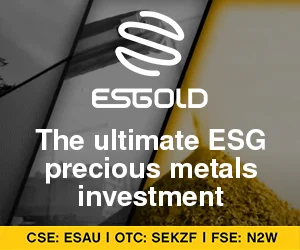Building a Legacy: Anil Agarwal’s Vision for Vedanta Group and Its Future
At the Hindustan Times Leadership Summit 2024, Anil Agarwal, the founder of Vedanta Group, shared insights into his vision for the future of his business empire and the potential role of his daughter, Priya Agarwal Hebbar. His remarks not only highlighted the personal legacy he wishes to pass on but also emphasized a broader institutional vision aimed at inclusivity and sustainability.
A Personal Legacy and Institutional Vision
Agarwal expressed confidence in his daughter’s capabilities, stating, “I am sure she will take it forward,” while clarifying that the focus is on creating an institution that will endure for 500 years. This dual approach—personal wealth succession and institutional longevity—reflects a thoughtful strategy to ensure that the values and mission of Vedanta Group are preserved and expanded upon.
Priya Agarwal Hebbar, who currently serves as the chairperson of Hindustan Zinc Ltd and a non-executive director of Vedanta Ltd, is already contemplating changes that align with her vision for the company. She stated, “Vedanta has to stand for equal opportunities for all,” highlighting the company’s pioneering efforts in promoting gender equality, such as being the first in India to employ women underground and establish a women’s rescue team at Hindustan Zinc.
Commitment to Inclusivity and Diversity
Hebbar’s commitment to inclusivity extends beyond gender equality. She has expressed intentions to ramp up support for the LGBTQ+ community, indicating a progressive approach to corporate social responsibility. This focus on inclusivity is not just a moral imperative but also a strategic advantage in today’s diverse marketplace, where companies that embrace varied perspectives often outperform their peers.
Expanding Horizons in Metals and Mining
Under Anil Agarwal’s leadership, Vedanta Group is poised for significant growth in the metals and mining sector. The company has ambitious plans to ramp up production across key commodities, aiming for an output of 3 million tonnes of zinc and an additional 3 million tonnes of aluminum. Furthermore, Agarwal envisions Vedanta becoming one of the world’s largest producers of copper and silver, alongside a target of producing 500,000 barrels of oil.
This expansion is not merely about increasing production; it is also about positioning Vedanta as a leader in the global energy transition. Hebbar emphasized the importance of renewable energy, stating that three of Vedanta’s major companies will operate on 100% renewable energy within the next 7-10 years. This commitment aligns with global trends toward sustainability and responsible resource management.
The Role of Critical Minerals in Energy Transition
Hebbar articulated a crucial point regarding the energy transition: “Energy transition can only happen with a focused approach on critical minerals and energy transition metals.” She underscored the need for domestic exploration, noting that only 20% of India’s natural resources have been tapped. This presents a significant opportunity for Vedanta to lead the charge in sustainable mining practices while contributing to the country’s energy security.
Challenges and Opportunities in the Semiconductor Sector
While Vedanta has made strides in various sectors, its foray into semiconductor manufacturing has faced hurdles. The company initially planned to establish a semiconductor plant in Gujarat in collaboration with Foxconn, but the Taiwanese partner exited the deal in 2023. Despite this setback, Agarwal remains optimistic, stating that with government support and public backing, Vedanta can successfully navigate this complex industry.
Competitors like the Adani Group and Tata Group are making significant investments in semiconductor manufacturing, which adds pressure on Vedanta to innovate and adapt. Agarwal acknowledged the competitive landscape but remains committed to exploring opportunities in this vital sector.
Future Prospects in Bihar
Looking ahead, Agarwal is eyeing the establishment of a “meaningful business” in Bihar, a state rich in minerals. He believes that with a strong government and a population of 30 crore, the region holds immense potential for industrial and tourism development. “It’s only a question of time,” he remarked, indicating his long-term vision for growth in this underexplored area.
Conclusion
Anil Agarwal’s vision for Vedanta Group is a blend of personal legacy and institutional ambition. With a focus on inclusivity, sustainability, and strategic growth, the company is poised to navigate the challenges of the modern business landscape. As Priya Agarwal Hebbar steps into a more prominent role, her fresh perspectives and commitment to equality will likely shape the future of Vedanta, ensuring that it remains a relevant and responsible player in the global economy for generations to come.




